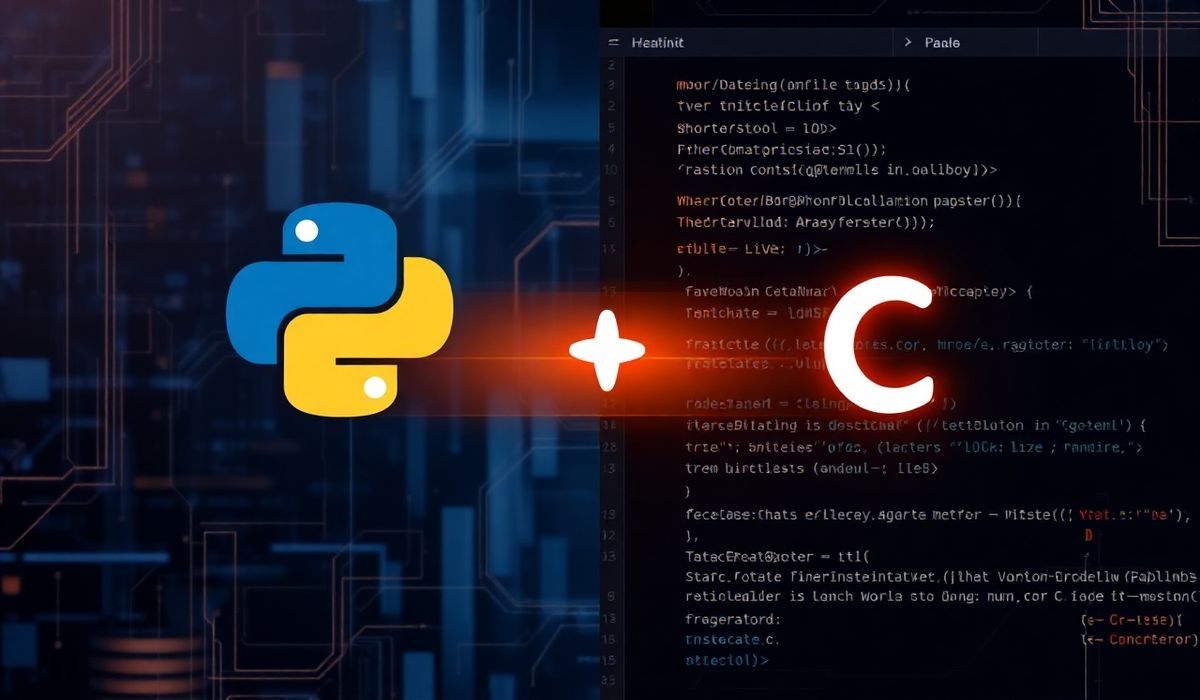Comprehensive Guide to CFFI Python Library
The cffi library (C Foreign Function Interface for Python) is a powerful tool that allows Python developers to interface with C code. Whether you need to call C libraries, interact with hardware, or write performance-critical modules, cffi makes interacting with native code seamless and Pythonic. This guide covers dozens of useful API explanations with illustrative examples, as well as a real-world app example to showcase its practical usage.
Getting Started with CFFI
Before diving into examples, make sure you have cffi installed. You can install it using pip:
pip install cffi
The cffi library allows you to define C declarations, call C functions, and even work with raw memory buffers directly from Python code.
Key APIs and Examples
1. Creating a CFFI Interface
Using the cffi.FFI() object is the starting point for interfacing with C libraries.
from cffi import FFI
ffi = FFI()
ffi.cdef("""
int add(int x, int y);
""")
Explanation: The cdef() method enables you to declare functions, structures, and constants that will be used from the C library.
2. Loading C Libraries
Load a shared C library using the ffi.dlopen() method.
library = ffi.dlopen("path_to_library.so") # Replace with your shared library's path
print(library.add(2, 3)) # Calls the C function 'add'
3. Defining New C Functions
Create C functions on the fly using ffi.set_source() and ffi.compile().
ffi.set_source("_example",
"""
int multiply(int x, int y) {
return x * y;
}
""")
ffi.compile()
4. Working with Structs
Manipulate C structs using Python.
ffi.cdef("""
typedef struct {
int x;
int y;
} Point;
""")
point = ffi.new("Point *")
point.x = 10
point.y = 20
print(f"Point: ({point.x}, {point.y})")
5. Using Pointers
Handle pointers and arrays efficiently.
ffi.cdef("""
void modify_array(int *arr, int size);
""")
array = ffi.new("int[5]", [1, 2, 3, 4, 5])
library.modify_array(array, 5)
print(list(array))
6. Accessing Global Variables
Work with C global variables directly.
ffi.cdef("""
extern int counter;
""")
print(f"Counter Before: {library.counter}")
library.counter = 100
print(f"Counter After: {library.counter}")
7. Handling Strings
Work with C strings and convert between Python byte strings.
ffi.cdef("""
const char* get_greeting();
""")
greeting = ffi.string(library.get_greeting())
print(greeting.decode('utf-8'))
Real-world Example: Building a Simple Python-C Calculator App
Let’s create a Python-based calculator that uses a C library for arithmetic operations.
1. Create the C Source Code
# calculator.c
int add(int a, int b) {
return a + b;
}
int subtract(int a, int b) {
return a - b;
}
Compile this into a shared library:
gcc -shared -o calculator.so -fPIC calculator.c
2. Write the Python Interface
from cffi import FFI
ffi = FFI()
ffi.cdef("""
int add(int a, int b);
int subtract(int a, int b);
""")
library = ffi.dlopen("./calculator.so")
# Calculator functions
def add(a, b):
return library.add(a, b)
def subtract(a, b):
return library.subtract(a, b)
# User interaction
print("Simple Calculator")
x = int(input("Enter first number: "))
y = int(input("Enter second number: "))
print(f"{x} + {y} = {add(x, y)}")
print(f"{x} - {y} = {subtract(x, y)}")
This example demonstrates a simple arithmetic calculator, where Python acts as a frontend for invoking efficient C functions.
Conclusion
By now, you should have a solid understanding of the cffi library and how to use it effectively to interface Python with C. Whether for small standalone projects or performance-critical systems, cffi stands as a reliable companion for Python developers diving into the world of native code.




